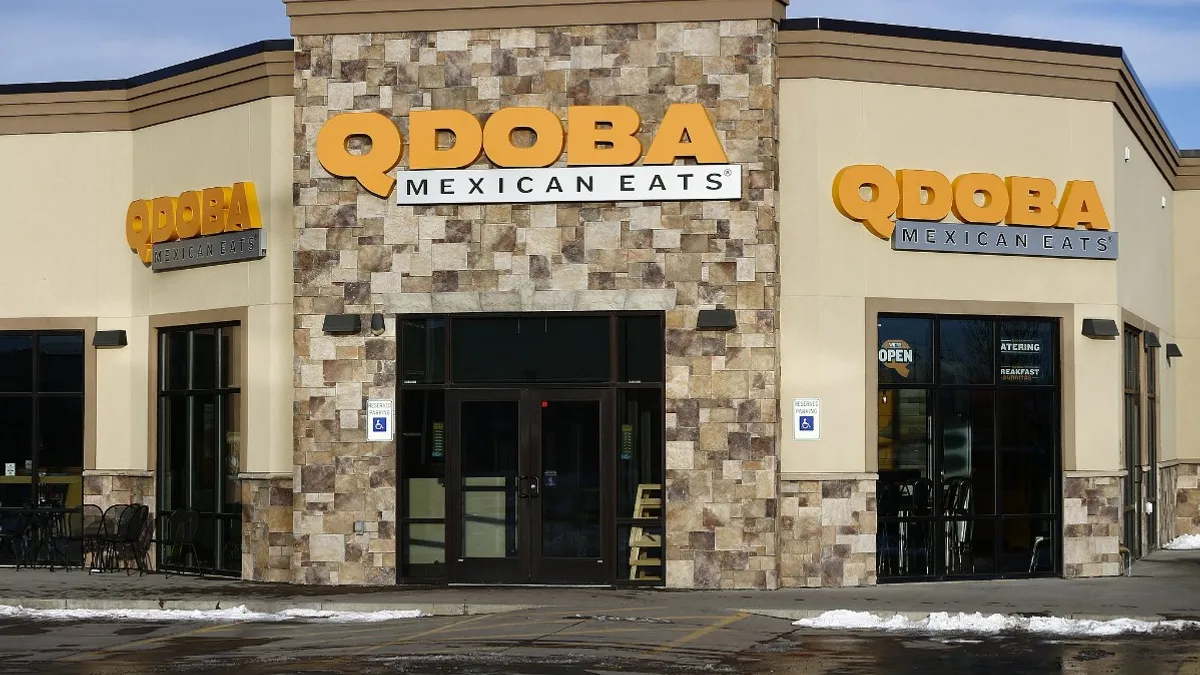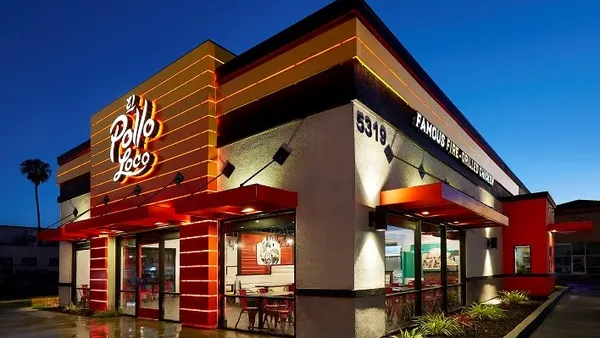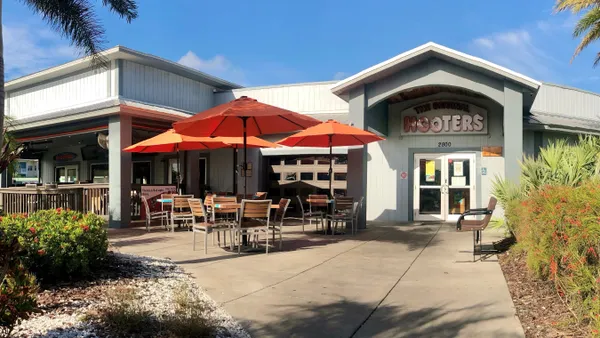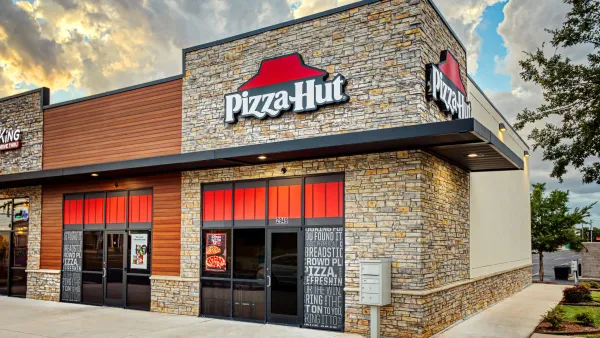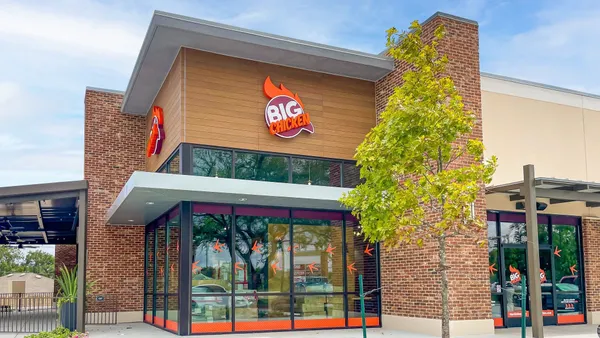Dive Brief:
- Apollo Global Management is looking into selling Qdoba, which it bought for $305 million from Jack in the Box in March 2018, according to Bloomberg.
- The private equity firm is working with advisors for a sale that could be worth $550 million, including debt.
- Qdoba, which has about 750 units in the U.S. and Canada, generates annual earnings before interest, taxes and depreciation and amortization of $50 million.
Dive Insight:
While private equity firms tend to hold assets for five to seven years, quick sell-offs are not entirely unusual in the restaurant space, which has been in a very active merger and acquisition period this year. L Catterton bought Del Frisco's Restaurant Group in June and quickly sold off Del Frisco's Double Eagle Steakhouse and Del Frisco's Grille soon after closing the acquisition.
Restaurants are offering good returns too. Onex Group sold Jack's Family Restaurants earlier this year for $835 million, over three times its initial investment. Apollo's asking price for Qdoba is 80% higher than its sales price.
Apollo's reason for sale may have to do with a failed merger attempt between CEC Entertainment's parent company, Queso Holdings, where Apollo is a controlling stockholder. The merger would have made CEC Entertainment, which includes Chuck E. Cheese and Peter Piper Pizza, public. The proceeds of the merger would have paid down $300 million in debt.
Qdoba could be a good buy for another restaurant brand or private equity firm, especially as the second-largest fast casual Mexican chain. It reached sales of $835 million in 2018, an increase of 1.6%, according to Restaurant Business. The company has grown modestly over the past four years, and is up 12% compared to 2015 when sales were about $745 million, according to Technomic estimates.
The chain is not without its challenges, however. Jack in the Box sold it after it higher wages and avocado prices impacted earnings, with the fast casual chain’s same-store sales dropping 1.4% during the 2017 fiscal year, according to USA Today. Same-store sales are up 4% annually under Apollo's management, according to Bloomberg, so it is possible that the company is more financially sound.



